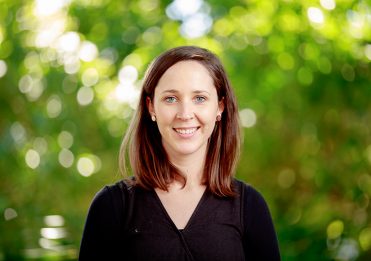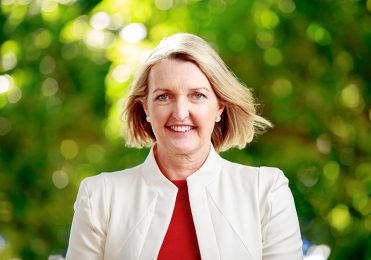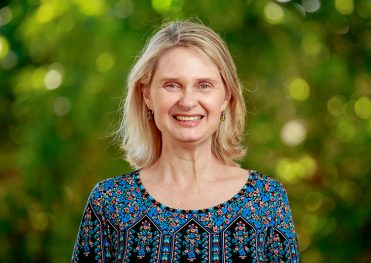Director of Information Services, Mrs Kristine Cooke
Originally published in 2015
Libraries eschew chaos. They offer structure, surety, and stability. Certainly, this is the traditional view and it should be preserved—but they must also facilitate inspiration and transformation. This is the paradox involved in what libraries offer and what librarians do. While the provision of quiet and effective spaces to work either independently or collaboratively is vital, there must be a balance with the more ‘chaotic’ side by providing challenge and transporting students beyond the known, the safe, and the expected. They need to be encouraged to ‘travel’ and discover.
Twenty-first century libraries are designed to respond to the divergent needs of a wide range of users and for an endless range of purposes. Library staff are professionally trained to encourage reading and promote literature but what is really exciting to the modern librarian is that not only can they engender a love of that precious artefact: the book; they can also capitalise on the opportunities afforded by technology. Who says an ebook is not acceptable? Whichever format is preferable or more appropriate for the task, the library’s role is to ‘inspire’ reading ‘with passion’ not to instruct users how to read (Fui, 2014). This is where school libraries are such wonderful places to work: they are not simply ‘designed for accessing curriculum material; they are also a playground for young minds. Students who discover the joys of reading for pleasure are well positioned for enhanced literacy, language acquisition, cultural understanding, and social skills’ (Clark, & Rumbold, 2006). Literature and reading promotion programs are, therefore, still relevant—perhaps even more so in this age of technological distraction and immediate gratification—but encouraging exploration and experimentation not only applies to fiction; it is just as important to ‘inspire the passions’ of the history or physics student. They, too, need the facility and the courage to investigate information and resources and to test ideas and hypotheses.
While inspiring researchers to be passionate about information location and evaluation may seem a less likely scenario than exciting readers about literature, it is not impossible, and there are students who love the ‘thrill of the chase’ and the ‘Eureka moment’. In 2014, one Year 10 history student was doggedly pursuing a particular article from a mid-nineteenth century Sydney newspaper. It was not ‘good enough’ to find a secondary source that referenced the article; she was determined to locate the original and primary source. With the assistance of the Reference Librarian, she did not give up through days of searching until the original was discovered. How satisfying was the end result and what skills she had learned in the process.
No matter how determined their attitude, students are not born with research and information skills; they must be explicitly taught and meaningfully integrated into classroom activities and assessment pieces. Despite appearances, teachers cannot assume that the students in their classes are technologically and information savvy and where else can the learner most appropriately acquire these abilities but in the specific space designed for the purpose? Where else is there a library staff member astutely blending the traditional and the cutting edge, printed pages with the latest search engine, paper magazines with databases and e-texts.
Libraries should be the centre of technological innovation in schools. The library is the creative heart of a school and I believe the humble library will come into the fore more now than ever before. Librarians are trained to assist students in sorting through information sources. They help students to learn to use new tools, and answer their questions (Fui, 2014).
What professionally trained library staff can provide users is a customised and nuanced service. They are a ‘bridge to knowledge, tempered with an understanding of the demands of tertiary research’ (Levy, 2014). And this is the destination of the vast majority of our students: university. In the modern world of information saturation, the trained librarian and teacher librarian provide personalised attention, a conceptual framework that matches the task required, and a ‘roadmap’ through the complexity and confusion of the information environment.
Open web and common search engines [read Google] will always be used by students but open web searches offer ‘casual browsing’ rather than scholarly research which must be purposeful: ‘a positive means to a positive end’. They do not offer a trustworthy ‘brand’, have ‘no catalogue, limited ebooks and certainly no proprietary subject indexes’. These facilities offer ‘high quality relevance ranking’ that improve the ‘usability’ of search results and reduce the number of searches required (Levy, 2014).
There is also a library role for the modelling and explicit teaching of technology. The expertise of library staff is in ascertaining the purpose behind different software and technology and what particular application is appropriate in which case: ‘if it has a purpose then it needs to be taught and assessed, otherwise students may never make the transition from using the technology as a form of entertainment to a productive tool’ (Georgiou,2014).
What Brisbane Girls Grammar School has created with the construction of the new Research Learning Centre is a unique opportunity in its 140-year history for the innovative and cutting-edge to complement the traditional and the familiar. The new facility with its staircase journeys and seamless integration of library spaces and classrooms, of books and technology, will become that special place where learners can reflect, contemplate, discover, explore, and create on their own or with others. It is a beautiful and dynamic building that not only incorporates the knowledge of ages past but also welcomes purposeful connection with the twenty-first century outside world.
References
Clark, C. & Rumbold, K. (2006). Reading for pleasure: a research overview. National Literacy Trust. http://files.eric.ed.gov/fulltext/ED496343.pdf
Fui, A. (2014). To inspire or to instruct. Connections, 91, 1-2
Georgiou, N. (2014). A world of online distraction. Connections, 91, 10-11
Levy, R. (2014) Open web v the library. Incite, 35(10), 19
Read reflective commentary from Director of Information Services, Mrs Kristine Cooke, on her article ‘Chaos Theory’.
In ancient Greek mythology, chaos is the origin of everything. It was personified as female, so I shall call chaos ‘she’ from now on. However, she was not an empty void; she was a place of energy and power from which everything arose.
Much of what was explored in my original article rings true today in terms of what we, as School library professionals aim to provide. There are, however, some ideas that deserve retrospective attention.
Firstly, there is the question of books. Before 2015, there was no end to the pronouncements by ‘experts’ that books would be obsolete. However, those statements remain untrue. In fact, over the past five years, the demand for books, both fiction and non-fiction, continues unabated. The library continues to devise new places in the building to include shelving and storage as new focal points arise from the curriculum and the interests of ravenous fiction readers evolve.
Trained library staff still enjoy the challenge of teaching information skills. Indeed, each year brings a new group of students eager to learn how to unlock the mysteries of Dewey, databases, and discovery.
We agree with fantasy author, Neil Gaiman who said, ‘Google can bring you back 100 000 answers. A librarian can bring you back the right one’. Fortunately, our girls remain curious with requests and questions for library staff and the library’s software, AskClio, has developed into the perfect Beanland Memorial Library GPS for students. It has focused and energised the research process and simplified location of an even wider range of reading material.
The School library continues to remain responsive to the continuing and changing needs of our students.




